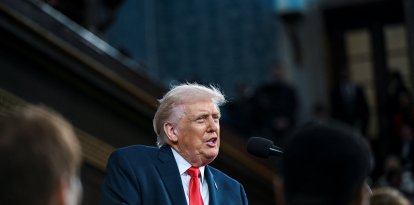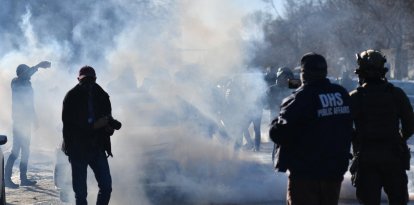House Republicans push to veto student visas for Chinese nationals over espionage concerns
Rep. Riley Moore argues that current immigration policy has allowed the entry of thousands of Chinese nationals on academic permits, which he believes facilitates surveillance activities and foreign interference.

House of Representatives.
Republican lawmakers in the House of Representatives are pushing an initiative to ban Chinese nationals from accessing student visas in the United States. The proposal responds to concerns about possible threats to national security and alleged espionage cases linked to beneficiaries of this program.
A response to the influence of the CCP
Rep. Riley Moore of West Virginia has repeatedly warned about what he considers misuse of the student visa system by the Chinese Communist Party (CCP). To address this issue, he will introduce a bill called the Stop Chinese Communist Meddling by Vindicating Intellectual Safeguards in Academics Act, or simply Stop the CCP Visas Act.
Moore argues that the current immigration policy has allowed thousands of Chinese nationals to enter on student visas, which he believes facilitates surveillance activities and foreign interference. "Every year, we allow nearly 300,000 Chinese nationals to come to the United States on student visas. We have literally invited the CCP to spy on our military, steal our intellectual property and threaten national security," the lawmaker warned.
The bill is still seeking co-sponsors, but is expected to receive the backing of Representatives Andy Ogles (Tennessee), Scott Perry (Pennsylvania) and Brandon Gill (Texas), among others.
A case that reinforces concern
One of the incidents that has fueled the debate occurred in Michigan, where five Chinese nationals were arrested after beingaccused of spying on U.S. military maneuvers while in the country on student visas. According to the investigation, the suspects were alumni of the University of Michigan, where they studied in collaboration with Shanghai Jiao Tong University.
Authorities allege that the defendants conducted surveillance at a National Guard base during joint U.S.-Taiwan exercises in 2023. A sergeant major in the Utah National Guard confronted them in August of that year, leading to the filing of charges in federal court on Oct. 1.
Opposition and criticism
Similar initiatives have faced resistance in the past, especially from civil rights organizations and Asian-American communities. Moore's legislation is expected to draw criticism from groups such as Asian Americans Advancing Justice, which previously condemned similar proposals by Senator Tom Cotton (Arkansas).
However, the measure may be necessary to protect national security and prevent academic programs from being used as a gateway for espionage activities.



























